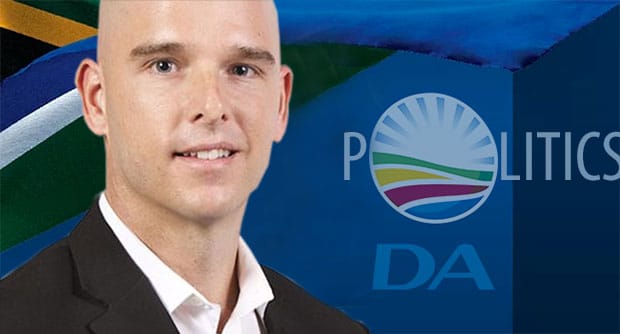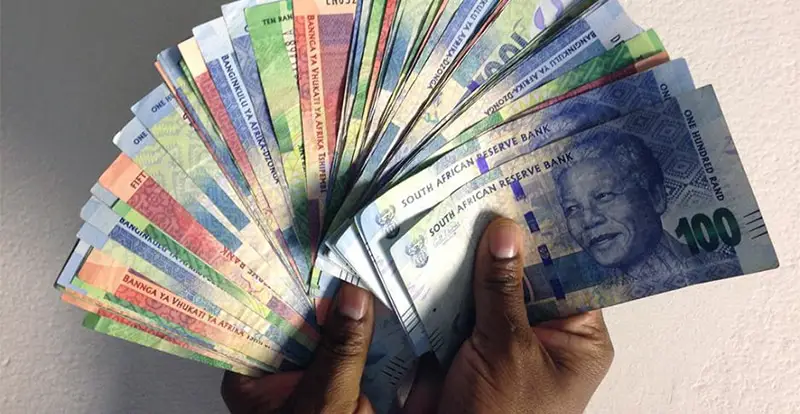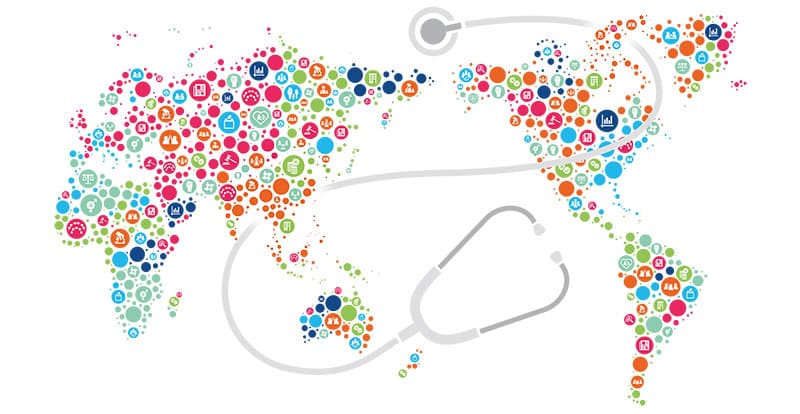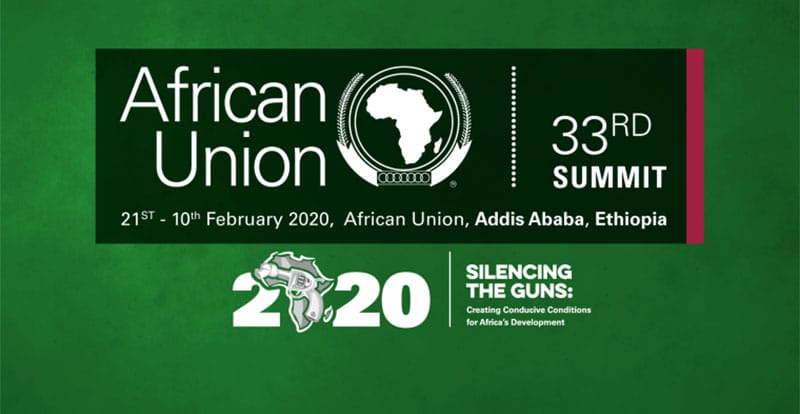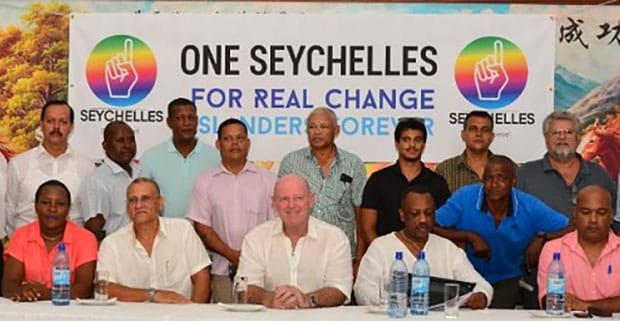Growing the South African Economy For All
CAPE TOWN, 12 September 2018 – The following remarks were delivered by the Leader of the Democratic Alliance, Mmusi Maimane, during an urgent debate on ways to mitigate South Africas’ economic recession in Parliament today.
Honourable Members,
The choice we face as a country is simple: Which world do we want to live in?
Because these are two options available to us: One is the world of the ANC, and the other is the world of the DA. Each of these choices will lead us towards a distinct future.
Economists have described the ANC’s world as a pre-1990 universe. A world in which the Berlin Wall is yet to come down.
In their world, the State is everything and must do everything.
In their world, SOE’s – no matter how badly run – are the answer.
In their world, citizens can’t be trusted to control their own destiny or own their own land. The state knows what’s best for you.
In the other world – that of the DA and many others who share our view – people hold the power over their own lives.
In our world, citizens have agency. They can own their land, run their businesses, build their wealth.
In our world, more often than not, the state must get out of the way of enterprise and progress.
Our world is one of inclusion and growth.
This is the choice we face, Honourable Members, as we contemplate the reality of a country in deep, deep crisis.
I’m not going to waste your time telling you about the extent of our economic distress. We all know this.
9.6 million people cannot find work.
Real per capita income has been dropping for the past five years.
Our national debt has ballooned to R3 trillion.
And we now face the threat of a further sovereign rating downgrade.
Anyone still denying that South Africa is in the midst of a severe economic crisis has no business standing up here on this podium today debating solutions.
Parliament should ask why we find ourselves here, and what we should do to fix it.
One analyst described our situation this week as “death by a thousand cuts”, referring to the many factors that came together to paralyse our growth and bleed our fiscus dry. And this is largely true.
Yes, corruption has cost us dearly. As much as R100 billion, according to some estimates.
Yes, the crisis at SARS has led to a huge under-collection of around R50 billion.
Yes, the never-ending bailouts of our poorly-run State-Owned Enterprises continue to divert tens of billions of Rands away from other crucial budget items each year.
Yes, our ever-expanding public sector wage bill along with our massive cabinet place a drain on our fiscus that we simply cannot afford.
Yes, populist policies such as Expropriation Without Compensation, the nationalisation of the Reserve Bank and the proposed NHI are a recipe for economic disaster.
All of these things played a part in bringing our economy to its knees.
But they pale in comparison to the biggest cause of them all – the economic elephant in the room that still goes unmentioned in so much of the analysis.
What lies at the very heart of our country’s crisis is the ANC.
The fact is this: The ANC doesn’t accept responsibility for causing this recession, and it has no plan to get us out of recession.
This administration is only seven months old, but it is already stumbling around in the dark looking for excuses, instead of facing up to hard truths.
There is no plan. There is no firm direction.
You can come here today and attack the DA’s plan to rescue the economy, but we have a plan. And where we govern, this plan is working.
In Johannesburg, the government of Mayor Mashaba has already attracted more than R6 billion in investment since taking over in 2016.
In Tshwane, Mayor Msimanga’s government has tripled investment in the metro.
75% of new jobs added in the past year were created in the DA-run Western Cape.
Honourable Members,
We all know that South Africa has a big problem. And it is a problem that won’t be solved with a stimulus package or an investment conference.
The root of our problem is an ANC that has no shared, positive vision for our future, never mind the ability to lead us there.
We have already been left behind by the rest of the world – and indeed by our African neighbours.
While the rest of the world surges forward with innovative and dynamic economies, we are retreating back to a time of state-led economies.
While the rest of the world embraces inclusive economic growth as the instrument to lift people out of poverty, we can’t look beyond redistributing what’s already there.
Our government is so obsessed with control, it cannot see how it is suffocating enterprise and strangling small business.
It honestly believes that every state failure just needs another state programme to fix it.
You cannot grow like this. This has to change.
Stop blaming the Global Financial Crisis. That was ten years ago. The world has moved on.
Stop blaming Jacob Zuma, as is fashionable these days. Jacob Zuma didn’t cause this mess, he only exploited it because he was allowed to.
The blame lies squarely at the feet of the failed ANC, collectively.
And if the ANC government can’t swap its outdated worldview for one better suited to the 21st century, then we must swap the ANC government for one that can take this country forward. That is the DA.
I know our country is ready to become part of a dynamic global economy. Just this morning I visited a business incubation and training centre in Delft, and what I saw there was inspiring.
We certainly don’t lack motivated people with ideas.
Honourable Members,
If there is real commitment to “picking up” the Rand and turning the economy to growth, then it is time for real choices. Hard but necessary choices that will restore investor confidence and get us out of the red.
Number One: We must cut loose the SOE’s that are dragging us under. This means the privatisation – or at least part-privatisation – of South African Airways, and splitting Eskom into two separate businesses, one for power production and one for power distribution.
Number Two: We must put an end to the stifling Eskom monopoly by allowing cities to purchase electricity directly from independent power producers.
Number Three: We have to curb spending and stabilise our national debt at 50% of GDP by introducing a fiscal austerity package. All revenue shortfalls must be covered by cutting waste, and not by increasing taxes.
Number Four: We must trim our Cabinet by more than half. Our massive executive with its double ministers for each portfolio is a direct result of patronage politics. We simply can’t afford this.
Number Five: We must exempt small businesses from complying with unworkable labour legislation. Those employing less than 250 people must be given every chance of success, and the only labour laws they should have to adhere to are the Basic Conditions of Employment.
Number Six: Immediately settle all budgeted-for invoices that are owed to small businesses by National and Provincial governments. This alone will add an R28 billion boost to the SMME sector.
And Seven: Scrap the reckless populist policies that are destroying investor confidence in our country and have sent business confidence to an all-time low.
Abandon your irresponsible and reckless plunge towards Expropriation Without Compensation. Let’s reform the land and keep our Constitution intact.
This doesn’t mean land reform and restitution must be delayed. On the contrary, it must be sped up, and it must involve the transfer of full title. But this cannot be done at the expense of property rights and the rule of law.
Stand up for the independence of the Reserve Bank, instead of trying to nationalise it. Protect and defend our excellent Governor; stop undermining him.
If we can implement these changes right away, we can undo much of the damage caused over the past decade.
What we can’t do is sit back and watch our growth stagnate for another quarter, and then another.
Because poor South Africans cannot withstand this. Their “real” household income cannot shrink any further – life is already barely affordable.
Now is the time to make some hard choices. Not easy choices like taking on more loans or hiking VAT. Hard choices about the world we want to live in.
And this means choosing either the unity of the ANC or the prosperity of South Africa. We can’t have both.
Thank you.

